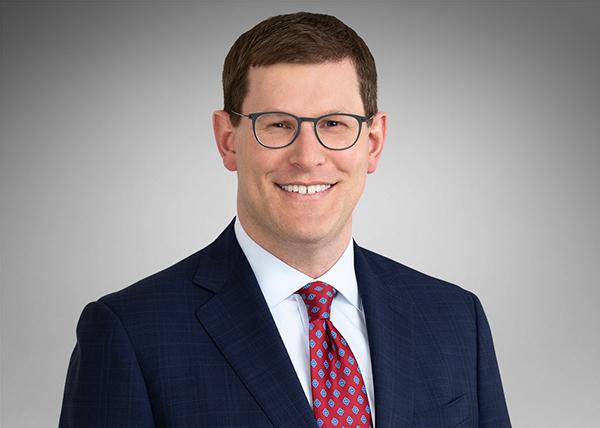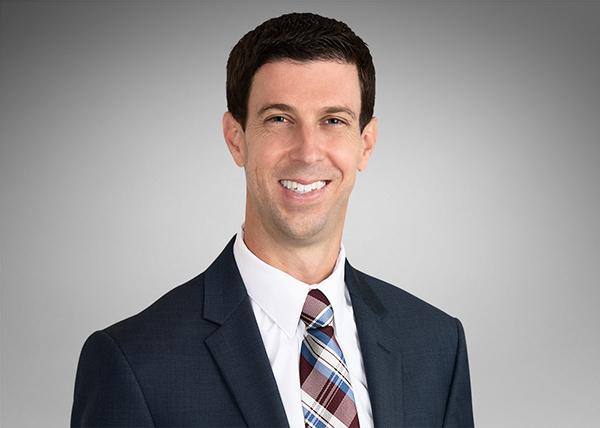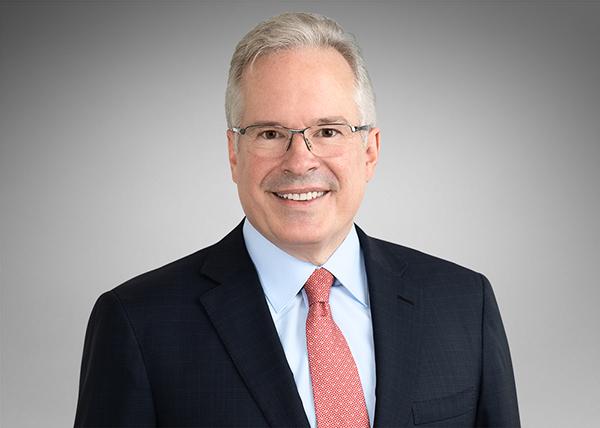What will FCPA enforcement look like in the Trump administration? That is, indeed, the question. Given the President’s promise to make sweeping operational changes across the Executive Branch, his particular focus on the U.S. Department of Justice, and early signs of the administration’s desire to shrink the federal workforce, we are watching for a potential contraction in FCPA enforcement in the coming years, even as countervailing forces abound.
|
Latest Updates and Developments
|
What Will DOJ’s Corporate FCPA Enforcement Program Look Like?
DOJ’s corporate FCPA enforcement program may be at a crossroads. In the waning days of the Biden administration, DOJ officials touted the Department’s continuing investment of resources to tackle white collar crime. But just weeks into the Trump administration, the President has initiated expansive efforts to shrink the size of the Executive Branch and change the way the government operates, including, among other things, a hiring freeze, mandated return-to-office policies, the option to leave government positions in exchange for severance, and potential furloughs. All of these efforts could have destabilizing programmatic and operational effects on DOJ’s ability to prioritize, resource, and execute on its FCPA enforcement program. Whether because of changing enforcement priorities, vacancies in key leadership positions, or diminished resources at the line prosecutor level, any number of factors could reduce the number of new FCPA investigations and slow the pace of corporate resolutions.
On the other hand, FCPA enforcement has remained a mainstay of the Department’s corporate enforcement program for nearly two decades, yielding consistent and high recoveries over a sustained period through at least the four most recent presidential administrations, including President Trump’s first term in office. In addition, considerable institutionalization of FCPA enforcement—in the form of dedicated prosecutors, established law enforcement relationships at home and abroad, and investments in data analytics and other resources, among other things—could insulate the FCPA enforcement program from broader destabilizing forces.
With respect to companies, at this point many have established well-embedded compliance programs designed to identify, investigate, and remediate misconduct; mechanisms to elevate potential issues for voluntary self-disclosure decisions; and policies to encourage compliant behavior. And many companies have seen the business, compliance, and enforcement benefits of investing in compliance.
At the same time, the potential for policy and programmatic enforcement changes by the Department over the coming year could raise significant questions around whether and how to engage with DOJ when issues are identified. The Biden administration DOJ oversaw an unprecedented flurry of policymaking focused in large part on further encouraging voluntary self-disclosures of corporate wrongdoing by companies and individuals alike, and continuing to promote cooperation and remediation on the part of companies, which we covered here, here, here, here, here, here, and here. Will the Trump administration roll back these Biden-era policies or change the way that the Department resolves FCPA cases with companies? During the first Trump administration, DOJ modified certain Obama-era policies around the margins, which we covered here and here, but DOJ did not materially change how corporate FCPA cases were investigated and resolved. Indeed, there is a nearly decade-long trajectory of DOJ policymaking, including during the first Trump administration, that has been designed to encourage voluntary self-disclosures—first by corporations and now also by individuals (covered here, here, and here)—and cooperation in DOJ investigations. If DOJ changes the benefits afforded to self-disclosing or cooperating companies, DOJ could face a smaller pipeline of cases or a more antagonistic posture from companies.
In these crosscurrents, it is difficult to predict what might happen to FCPA enforcement in the coming year. Will the early actions by the Trump administration translate to programmatic and operational changes in DOJ’s FCPA Unit, or will other parts of the government or the Department bear the brunt of these efforts? Will DOJ’s policy priorities change the incentive structure for companies facing potential FCPA concerns? Only time will tell. If the first Trump administration is any indication, we would expect FCPA investigations and enforcement to continue relatively apace, which may hold true given the institutionalized nature of the enforcement program, an existing pipeline of cases, and a growing whistleblower bar focused on bribery and corruption. But it also would not be surprising to see a dip in FCPA enforcement over the next four years, as legacy cases are resolved, resources are constrained, and other areas of enforcement take priority in the Trump administration.
What About the SEC?
Similar to at the Department, the SEC may also confront leadership turnover and staffing changes or constraints, which could impede the SEC’s efforts to resource and operate its FCPA enforcement program. SEC leaders, in a de-regulatory environment, also may be loath to be perceived as regulating through enforcement. Moreover, recent reporting indicates that the bipartisan, but Republican-led, Commission must approve all formal orders of investigation—an authority that was previously delegated to the Division of Enforcement—raising questions about whether and how that change may impact the number and scope of new investigations at the SEC.
On the other hand, if the SEC receives less attention from the White House and experiences less staffing turnover than at DOJ—which seems to be the case so far—it may be that the SEC’s corporate FCPA enforcement program sees fewer disruptions or changes in priorities and resources, particularly given that there will be continuity at the Commissioner level, as Commissioners serve five-year terms with one Commissioner’s term ending each year. In that regard, the current set of Commissioners has not demonstrated a desire to curtail FCPA enforcement. Moreover, the principles that guide the SEC’s FCPA enforcement have been in place for well over two decades and have been subject to less frequent revision in recent years as compared to DOJ’s policies. And in a de-regulatory environment, FCPA enforcement may receive relatively greater priority and attention internally at the SEC, as efforts to regulate or enforce in more novel areas such as cryptocurrency face headwinds, as signaled in the recent reported scaling back of a special unit of the SEC that had been focused on cryptocurrency enforcement actions.
Thus, while the pace and nature of FCPA enforcement at the SEC might change in the coming years, we think it is more likely than at DOJ that the status quo will prevail.
What Should Companies Do?
In this uncertain environment, many companies may ask: “Should we continue to invest in anti-corruption compliance?” In a word, yes. For many years, companies have achieved more favorable resolutions in FCPA matters by demonstrating the strength of their anti-corruption compliance programs and enhancements made in response to the misconduct being investigated. Unless and until DOJ moves away from considering compliance as part of corporate criminal resolutions, companies should stay the course. And even if DOJ’s corporate FCPA enforcement program changes a company’s calculus around voluntary self-disclosure and cooperation, it is not necessarily the case that compliance would become less important. If DOJ enforcement were to decline, or if its policies were to change, issuers likely will still face SEC enforcement, which would suggest that companies will continue to see benefits—even if perhaps less concrete and predictable—associated with voluntary self-disclosures and cooperation in government investigations.
During the first Trump administration, the Criminal Division issued and then further revised the Evaluation of Corporate Compliance Programs guidance, which built upon guidance released by the Fraud Section in 2017, and which we covered here, here, and here. And there are broader benefits for companies continuing to invest in their compliance programs: regardless of DOJ’s or the SEC’s specific enforcement priorities or policies, companies benefit from having robust compliance programs that prevent and detect potential compliance issues, thereby enabling them to make thoughtful business and enforcement-related decisions.
Other Key Questions
There are several other FCPA-related issues we are keeping an eye on in the coming year. For example:
- Will the Trump administration’s geopolitical priorities influence FCPA enforcement? The Trump administration is pulling various levers to influence geopolitics around the world. China, Latin America, and Canada have been particularly in focus as the Trump administration seeks to tackle trade imbalances and immigration concerns. Could geopolitical policy initiatives lead the Department to prioritize certain regions, types of cases, or types of companies for enforcement? Perhaps. DOJ’s China Initiative, announced during the first Trump administration, focused on, among other things, “[i]dentify[ing] Foreign Corrupt Practices Act (FCPA) cases involving Chinese companies that compete with American businesses.” Although DOJ credits the China Initiative with just one FCPA enforcement action, perhaps the Trump administration’s priorities will create greater FCPA risks for certain companies and in certain regions.
- How will a second Trump term impact international cooperation in FCPA enforcement? Cooperation between U.S. and foreign law enforcement has been a bedrock of FCPA resolutions, which often involve complex fact patterns spanning multiple jurisdictions. A DOJ official recently observed that DOJ’s list of foreign partners continues to grow. If President Trump’s foreign policy approaches increase diplomatic tension with allies and partners, will that harm cooperation among international law enforcement in FCPA investigations? We think that foreign enforcers are likely to continue to cooperate with U.S. law enforcement when they conclude that it is in their interest to do so. Will DOJ find new partners in jurisdictions that have not typically partnered with U.S. enforcers on anti-corruption matters? Potentially. Looking ahead, we will be watching to see if changes in U.S. foreign policy, coupled with the departure of senior career prosecutors who have built relationships over decades with foreign enforcement officials, leads to a decline in cooperation from foreign authorities in FCPA investigations that may not be a priority in their home jurisdictions.
- Will DOJ and the SEC continue to pursue aggressive interpretations of the FCPA? Both DOJ and the SEC have at times brought creative and expansive approaches to their enforcement of the FCPA. As discussed here and here, DOJ has continued to argue for broad extraterritorial application of the FCPA through agency-based theories of jurisdiction. FCPA enforcement in 2024 included resolutions such as Telefónica Venezolana, which alleged that the defendant subsidiary was an agent of its issuer-parent company because the parent controlled, oversaw, and managed the subsidiary’s operations, including the selection and employment of its senior officers. By alleging that the subsidiary was an agent of the issuer-parent, DOJ based U.S. jurisdiction over the foreign subsidiary on the issuer-parent’s control of the subsidiary. Similarly, the SEC has, over the years, brought enforcement actions under expansive views of what constitutes internal accounting controls, a view that was reinforced in the Second Edition of the FCPA Resource Guide, released during the first Trump administration and discussed here. But that view has been subject to significant judicial scrutiny in the last year, with Judge Paul Engelmayer of the Southern District of New York noting in a decision dismissing accounting provisions charges against SolarWinds Corp. that the internal accounting controls provision “does not govern every internal system a public company uses to guard against unauthorized access to its assets,” and is instead limited to controls related to the accuracy and completeness of an issuer’s financial reporting.[1] We will be watching to see whether changes in personnel and enforcement priorities at DOJ and the SEC lead enforcement authorities to focus on narrower interpretations of the FCPA, or whether these types of expansive interpretations of the statute continue to be applied.
Conclusion
The year ahead should answer many questions about what to expect from the Trump administration’s corporate FCPA enforcement program. We will be listening carefully to what the leaders who fill key senior enforcement positions at DOJ and the SEC say about their intentions, and watching for policy changes that may have implications for companies.
[1] SEC v. SolarWinds Corp., 1:23-CV-09518, 2024 WL 3461952, at *51 (S.D.N.Y. July 18, 2024).
Back
Back
































































